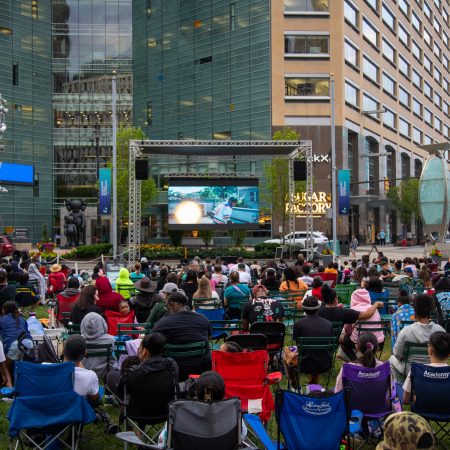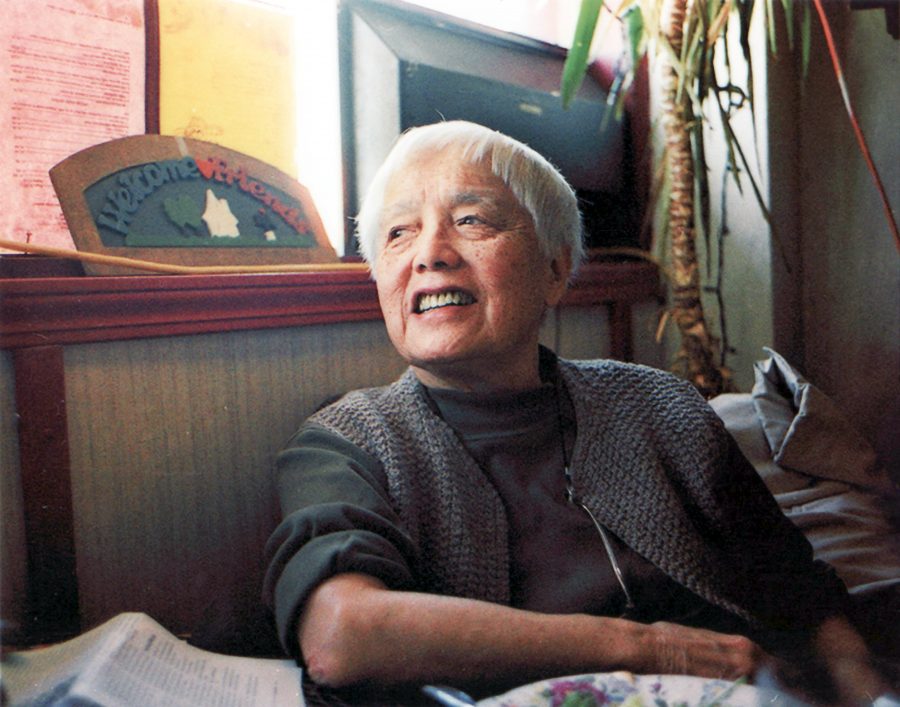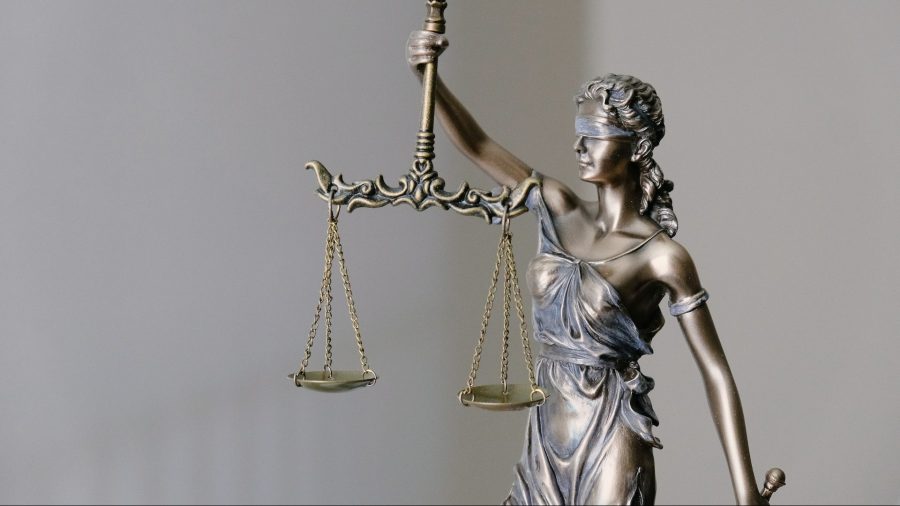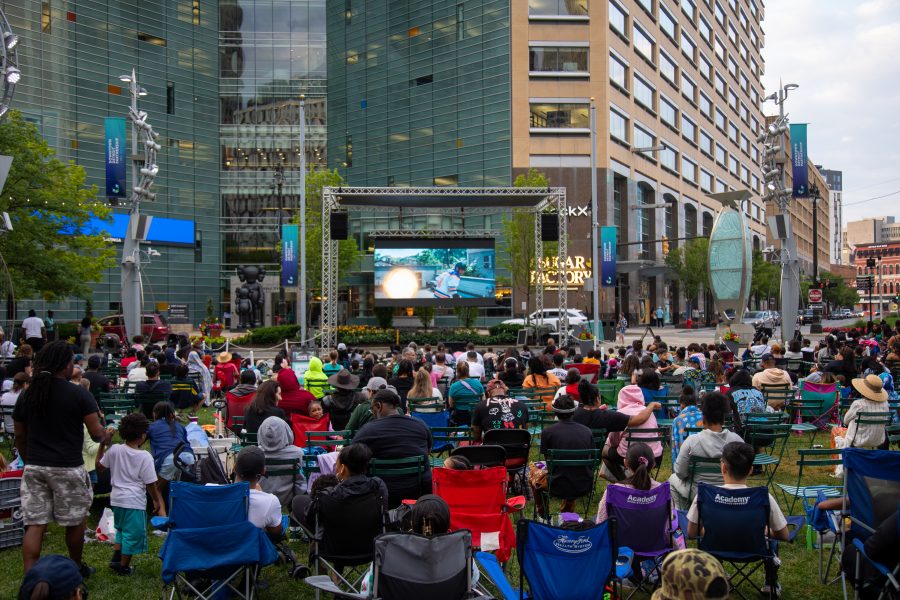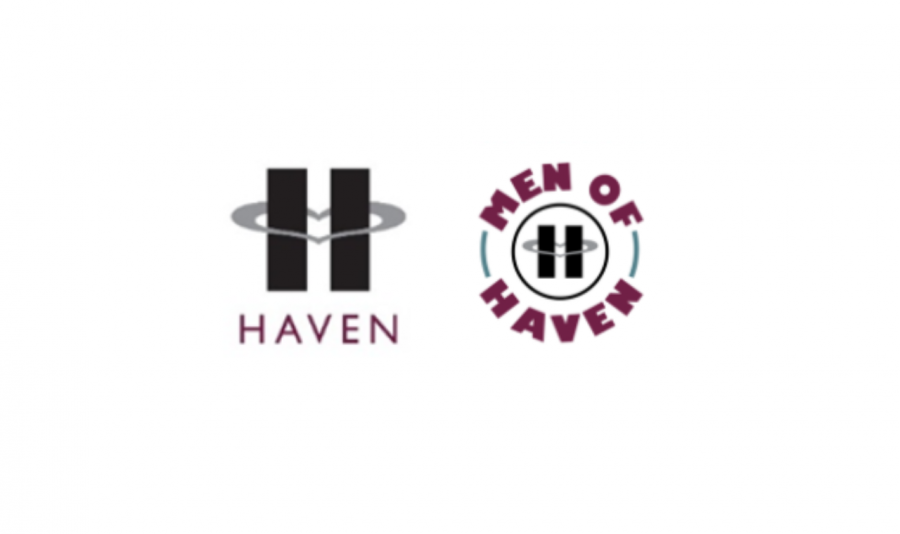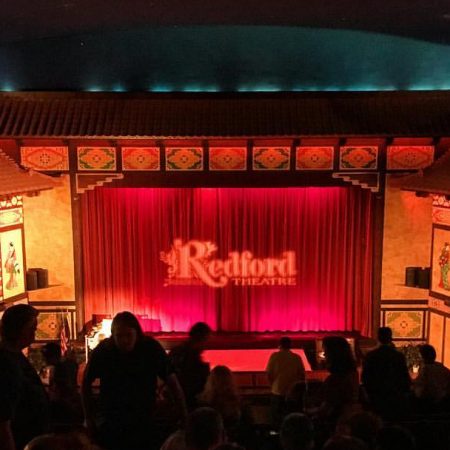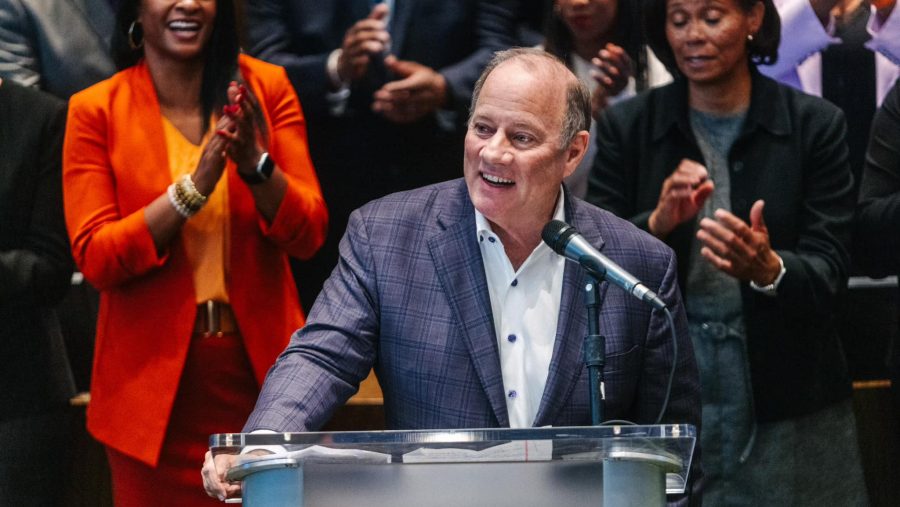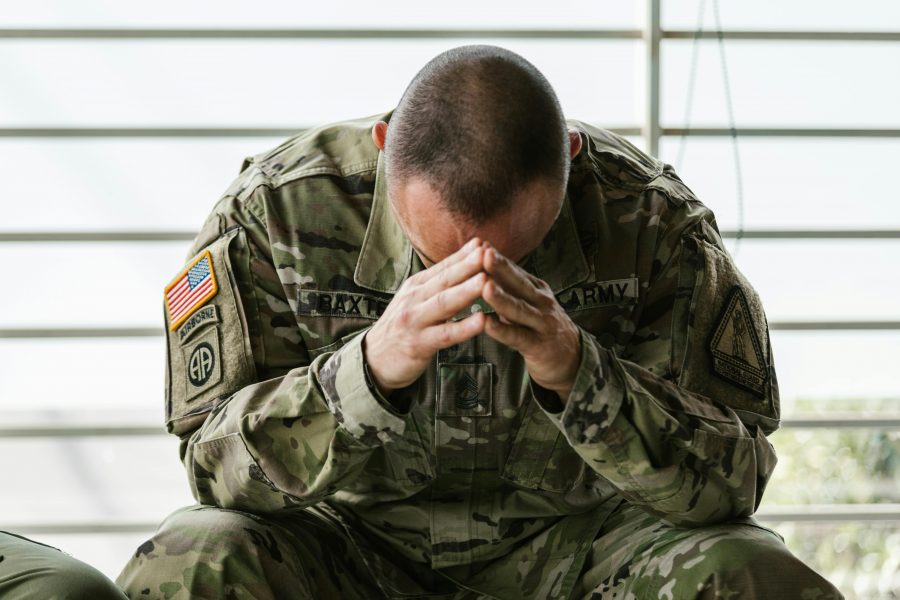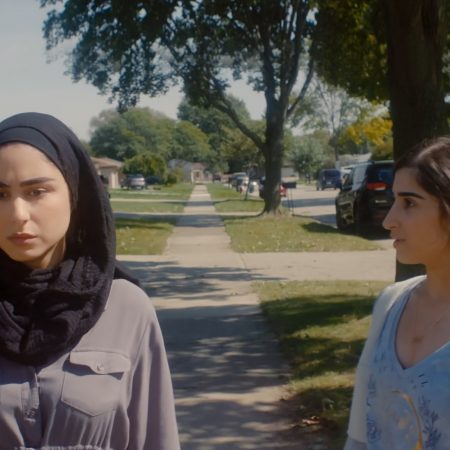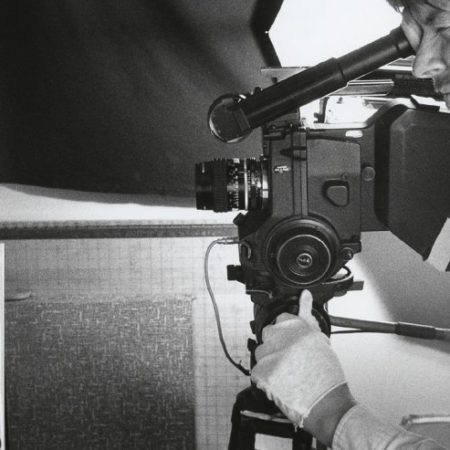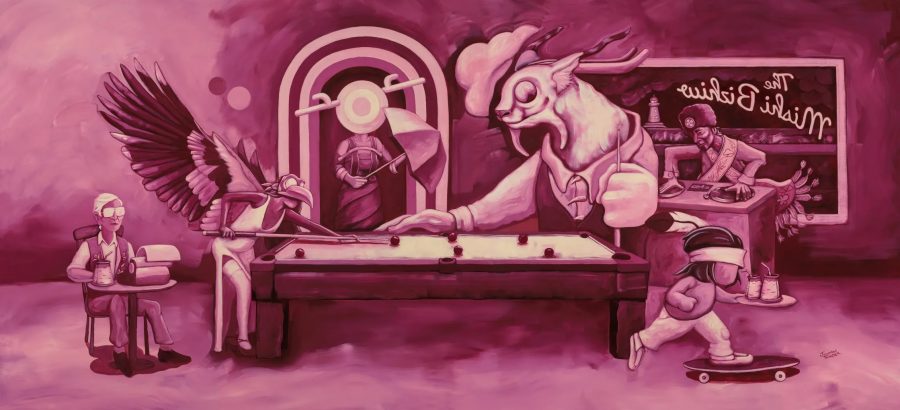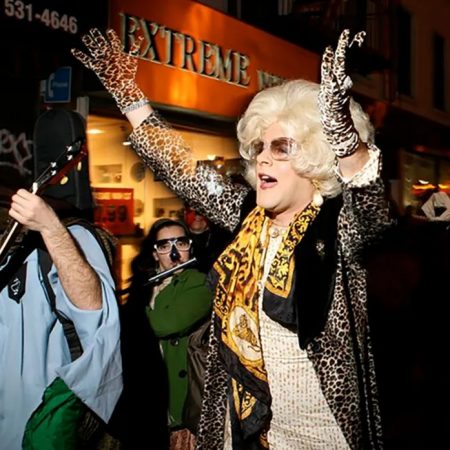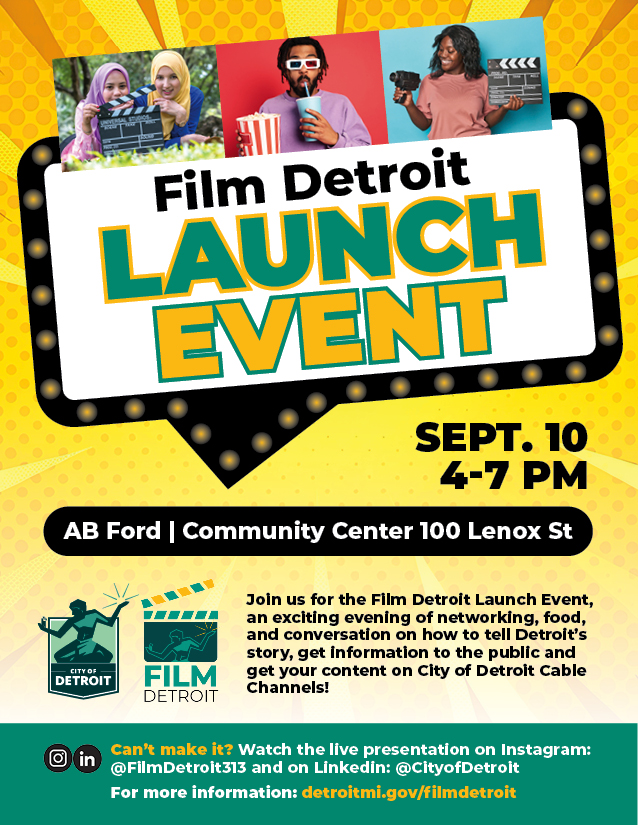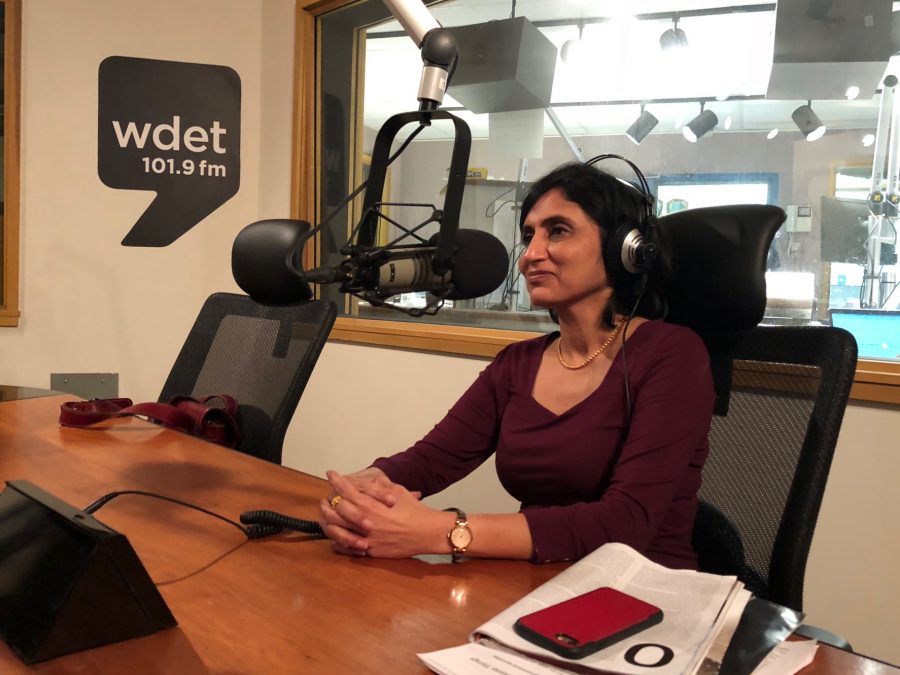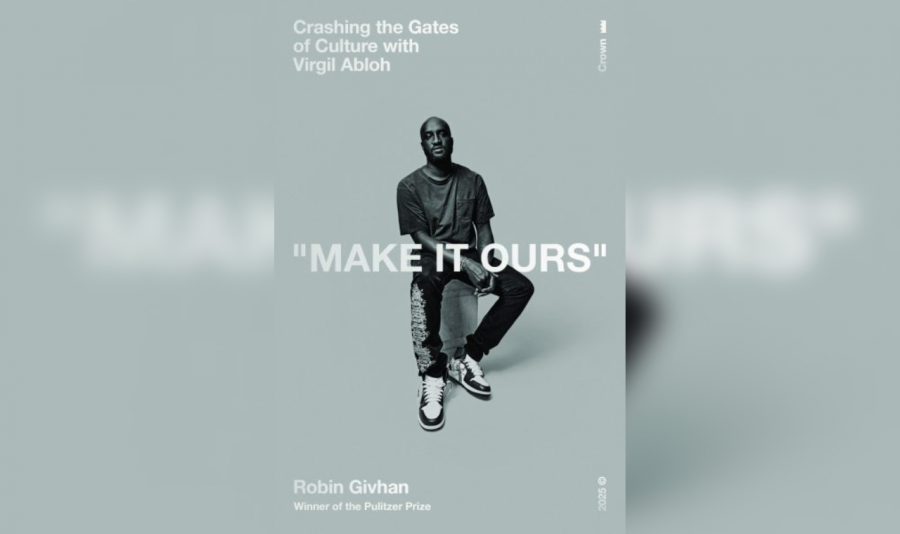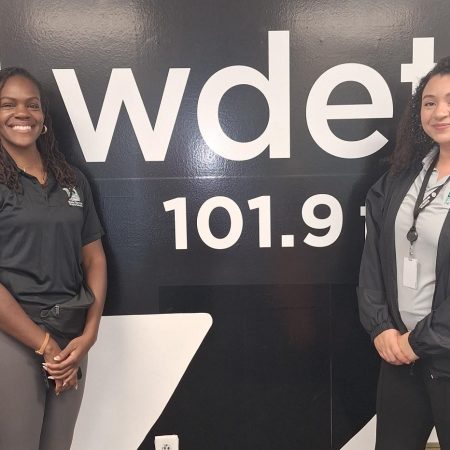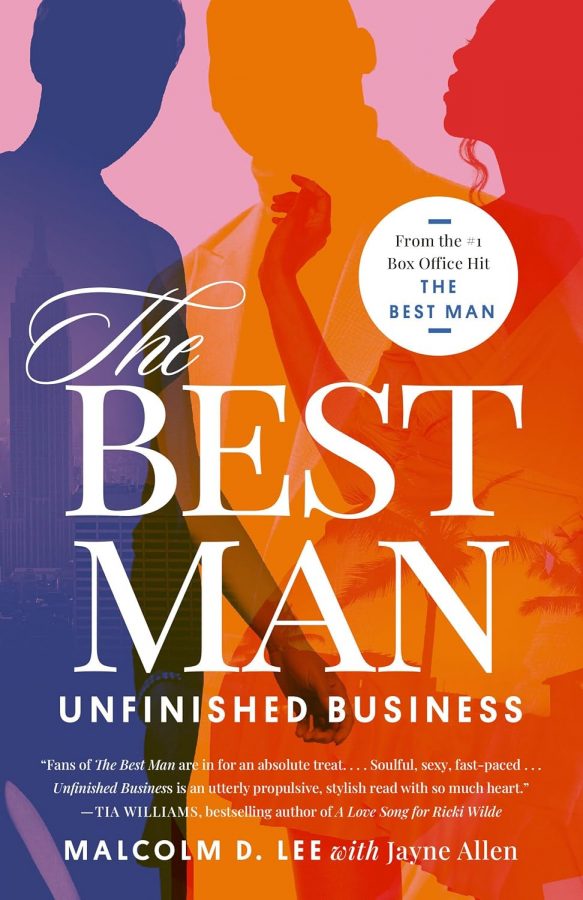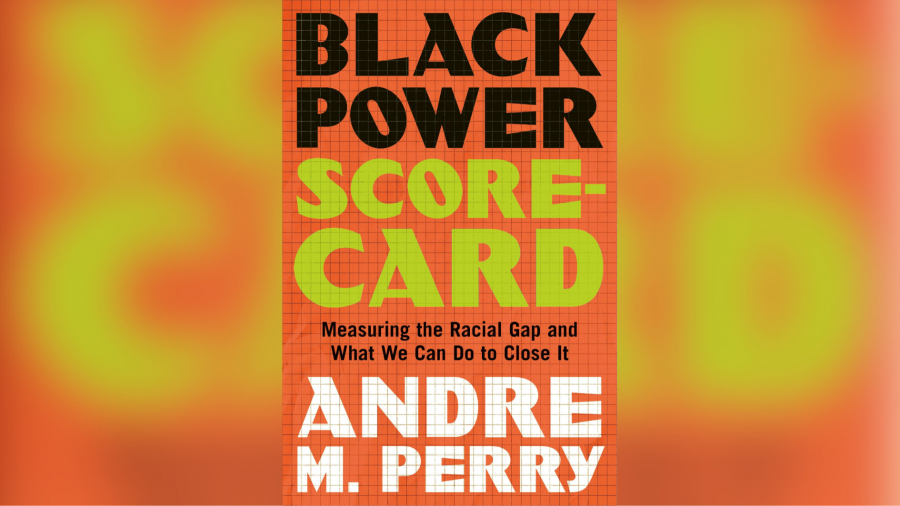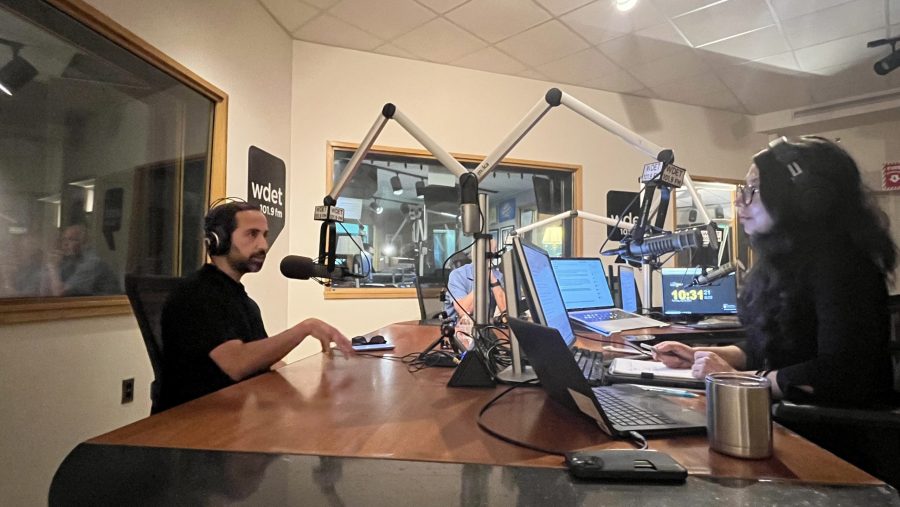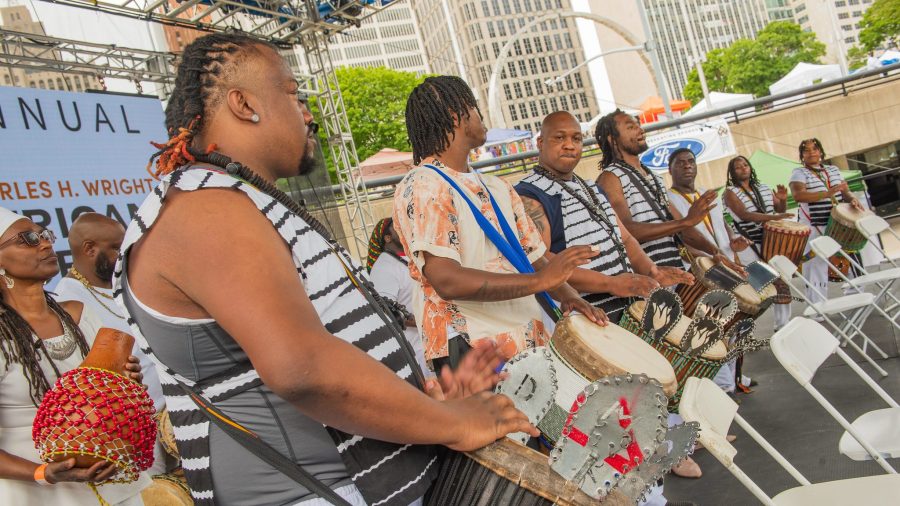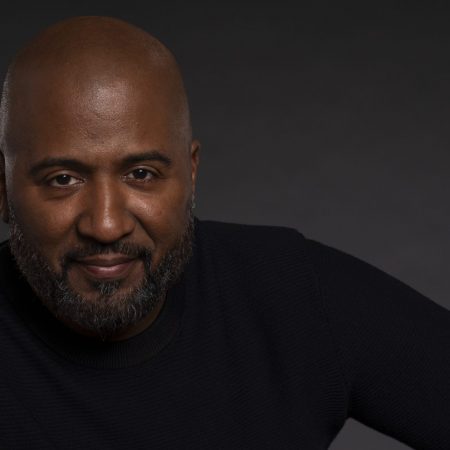Film director Ken Burns has gained fame with his acclaimed examinations of the U.S., beginning with his dramatic documentary on the Civil War.
Now Burns is coming to Detroit to promote his latest look at a conflict that shaped the nation, the American Revolution.
He says it stands as a portrait of a people who came to defy a king.
But Burns says it also created unanticipated ripples that set both the nation and public broadcasting on the course they follow today.
The following interview has been edited for clarity and length.
Ken Burns: We’ve been working on this for almost 10 years. When I started, Barack Obama had 13 months to go in his presidency. After the Civil War series came out in 1990, I said we’re not gonna do any more wars. But I got lured into doing World War II because I heard that something like 40% of graduating high school seniors thought we fought with the Germans against the Russians in the Second World War and I just kind of banged my head against the wall and said, “Come on, we’ve got to do it.” And before the ink was dry on that I said we’re doing Vietnam. And before the ink was dry on Vietnam, somewhere around December of 2015, I just said, “We’ve got to do the American Revolution.” Because in these complicated and I think difficult times, it’s important to know our origin story. I also think that we have smothered the revolution in sort of a gallant, bloodless myth. It’s encrusted with the barnacles of sentimentality, perhaps to protect the big ideas happening in Philadelphia.
We don’t want to deal with how violent it was. And it was its own civil war, in a way our Civil War isn’t. There’s large amounts of civilian death in a small set of colonies that has around 3 million people at the time that the revolution begins.
Going beyond statues and monuments
KB: What I found is that by digging deep into the story it doesn’t diminish the big ideas, it makes them even more inspiring. I think the American Revolution is the most important event in world history since the birth of Christ. For the first time, people aren’t subjects, they’re citizens. That’s worked pretty damn well and has spread across the world.
And now, as we begin to fear for that system, it might be good for all of us, regardless of where you come from, to go back and find purchase, to find some place, somebody to identify with in the story of the American Revolution. And it doesn’t have to just be the top-down folks. They’re all there, all the bold-faced names, now more dimensionally real. George Washington’s a real person. John Adams is a real person. His wife, Abigail, is a real person. So is Jefferson. You get to know them in different ways then just people in history textbooks. But you also get to meet literally dozens of other people. A 10-year-old gal from Yorktown, a 14-year-old who joins the Patriot army right after Lexington and Concord. A 15-year-old who signs up the next year in the summer of 1776 and fights throughout the war. Free and enslaved African Americans, Native people, German officers, soldiers and their wives. The King of England, his ministers. The French. We like to think of it as our little struggle to throw off tyranny. But it is, in fact, this global struggle that is the third or the fourth world war fought over the prize of North America. It’s just as good a story as I’ve ever come across.
Democracy was not the plan
Quinn Klinefelter, WDET News: In some of the episodes the narrators call it the most consequential revolution in history. They also say the founders were not doing it to create a democracy, that democracy came as an unintended consequence. That sounds a bit different from what many believe was a fight to free ourselves from a king.
KB: So think about it. The guys that sort of foment the revolution are men of property, sometimes of wealth. They’re certainly free of debt. And they assume they’re going to create a republic of an aristocracy, what today we’d call elites, though it didn’t have any of its pejorative connotations then. It meant the best of the best. But in order to win that war, in order to beat the British, it’s not going to be the sturdy militiamen who are going to disappear to plant crops or disappear to go back because they miss their family. It’s going to be teenagers. It’s going to be ne’er do wells. It’s going to be felons. It’s going to be second and third sons without the chance of an inheritance. Those people are going to do the fighting and be there at the ultimate victory. You’re going to have to throw them something.
So, beginning in Pennsylvania with their state constitution, they’re beginning to extend it not just to propertied men, white men, but to all men. The quarrel over the rights of British citizens becomes blown out into universal rights. Remember, this is the Enlightenment. They are taking these big new ideas and they’re saying, “Hey, we could actually start a government with these big new ideas.” Everybody’s been a subject. Now we’re citizens. That takes great responsibility. Pursuit of Happiness is not just a hedonistic pursuit of things in a marketplace of objects, but lifelong learning in a marketplace of ideas. That’s a big deal and you have to extend it. You’re gonna realize that 15-year-old kid from Connecticut who’s gonna fight throughout the war, you gotta give him something. So democracy is not the object of the revolution, it’s a consequence of it.
A film with no pictures
QK: You’ve developed a kind of signature approach in these documentaries, having actors read from old letters or journals and kind of slowly zooming in on photos and things. But there were no photos in the American Revolution, just paintings. In terms of pure filmmaking, how difficult was it to tackle something from almost 250 years ago?
KB: It’s tough to rely so extensively on it for a war. You put three or four paintings together and they start to look like cartoons. So maps take on greater importance, the actual documents and diaries, signatures, the stuff of where people lived. But it also required me to get over a kind of reluctance about using reenactments. Not to restage a battle but to follow soldiers for years and years. Having people who are fanatical about getting exactly the right uniform, whether it’s a French a German hessian uniform, a British soldier, an American militiaman, an American continental, the Native Americans, the Black Americans who fought on both sides, whatever it might be. To follow them around and do it in an impressionistic way that you could treat the live cinematography like paintings, then treat the paintings and the drawings and other things as if they’ve got dimension. And it works. I think people will really appreciate us getting out of our comfort zone and trying to figure out how to bite off more than we can chew. And then learn how to chew it.
QK: Do you enjoy getting out of your comfort zone and biting off more than you can chew?
KB: I’ve always done that. I have on my desk something from Tyrone Guthrie, the late founder of The Globe Theater in Minneapolis. And he said, “We’re looking for ideas large enough to be afraid of again.” And that meant taking risks.
A nation that was always divided
QK: This documentary about the origin of the nation comes as our current country is pretty bitterly divided. Do you see lessons from dissecting the American Revolution that you think could help bridge some of those divisions that exist today?
KB: The past is always a great teacher, so the simple answer is yes. But we’ve always been divided. Certainly our revolution is a civil war, in a way our Civil War isn’t. The American Revolution had, unfortunately, large civilian deaths. In our Civil War there’s relatively few outside of Missouri and eastern Kansas. It’s a sectional war, one part of the country against the other. It’s armies fighting. Only one or two civilians die at the Battle of Gettysburg, which is the biggest battle ever fought in North America.
What’s happening in the American Revolution is that civilians are killing each other and being killed. Loyalists are killing patriots. Patriots are killing loyalists. Both are killing the disaffected, those who sort of want to keep their heads down and not be engaged. There’s some battles in which there might be a British officer leading the loyalists, but everybody else who is killed or wounded is an American. This is a big deal. And I think it will be a surprise to people. First, to just sort of exhale and go “Okay, we’ve always been divided. Now, where can I find purchase in this story?” And I think what we will find is there will be strange allies among those who dedicate themselves to watching all six parts and 12 hours of the documentary.
They will begin to see the whole purpose of the revolution was to do something different in the world. This idea of citizenship and being responsible, that there are no kings, that this is anti-monarchical, the first time that it ever happened, is a huge, huge thing.
The assumptions, the superficial, conventional knowledge many Americans have of the revolution, I hope, will be blown out of the water. And then replaced with something much more complex. And that’s the problem. When we talk about divisions, we think about our political life, in which everything is binary. But there’s nothing binary in the world.
We introduce you to a person that we’ve all heard of, who is deeply flawed, who’s rash on the battlefield, who actually makes a couple of major tactical mistakes in the course of the war that lose two major battles. But without him we do not have a country, full stop, period. His name is, of course, George Washington. But to get to know him away from the dollar bill, away from the mythology of cherry trees and not telling a lie, is to meet somebody who is the only person you can say that if he had been killed, we would be speaking British English, or we would be speaking French or Spanish. He’s that consequential a person. You don’t want him as a one dimensional figure.
Choosing stories not sides
KB: Unfortunately, our political discourse is always an on-off switch. It’s a red state or a blue state, I’m right, you’re wrong, my way or the highway, whatever it is. When life, as we all know, is much more complicated than that. And I think this is where a good story can come in.
The novelist Richard Powers said, “The best arguments in the world won’t change a single person’s point of view. The only thing that can do that is a good story.” I’m not looking to change a specific point of view, I’m trying to be like an umpire calling balls and strikes. Sure, the highlight reels show Babe Ruth hitting a home run. But he only comes up once every nine times at bat, and a lot of times he strikes out. So let’s look at the whole picture. Who are the other eight players, right? This is what good storytelling is. And we’re drawn to good storytelling because of the degree of complication that exists within and between people.
We talk today, in this binary computer and media world, as if heroism is perfect. The Greeks, who we’ve inherited the idea of heroism from, knew that it was a negotiation, sometimes a war, within an individual, between their strengths and weaknesses. Achilles has his heel and his hubris to go along with his great strengths So all of a sudden it’s no longer white hat, dark hat. It’s succession. Everybody’s got motives, everybody’s got complications. Nobody’s perfect. Everybody is interesting. And that’s what we tried to do with all the histories we’ve told. But none seem more urgent than delving into a more accurate and complicated story of our founding
QK: Why none more important than that to you?
KB: Quinn, I won’t work on a more important film than this, whether it’s the Civil War or the Holocaust or Vietnam, even the national parks or the Roosevelts. Because I think it’s really important to come to terms with where we were born, what the hallmarks are of that birth, what the sacrifices were of people. And it’s not just me, I’ve heard this from people who’ve had the chance to see it over the last six months that it’s been essentially done.
The film raises the question of which side would I have been on? There’s no shame in being a loyalist. A loyalist is a conservative. The British monarchy is the best system of government on earth at that moment, so far. To say all my prosperity, all my health, all of this good fortune comes from that is to be loyal. The Patriots are offering something that has seems to have zero chance on April 19, 1775, zero chance of success. So instead of making the loyalist villains, they become important part.
